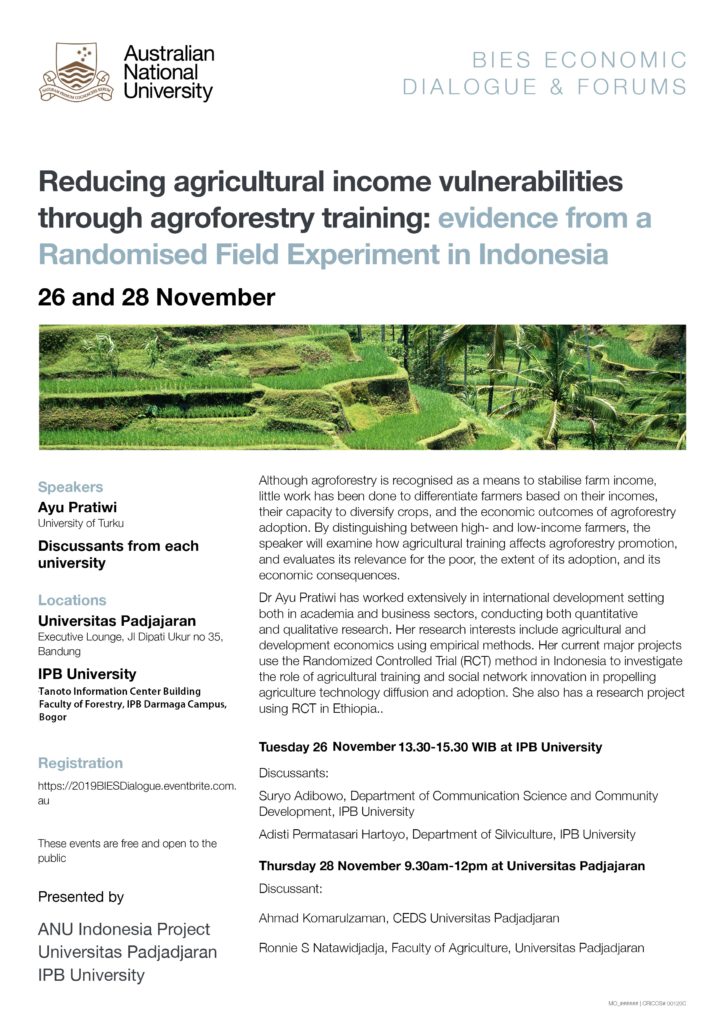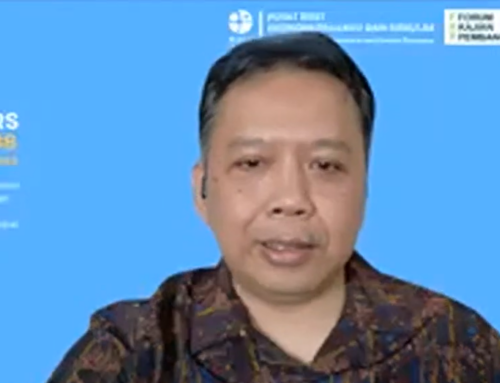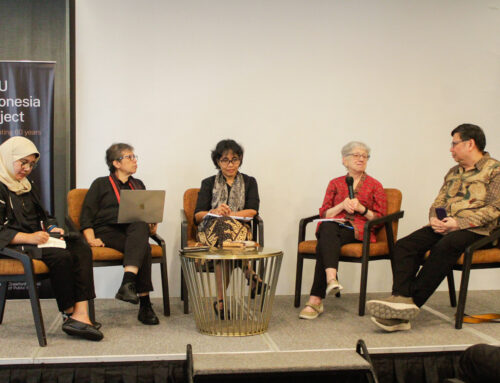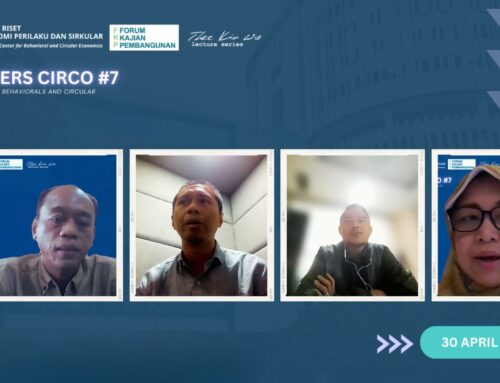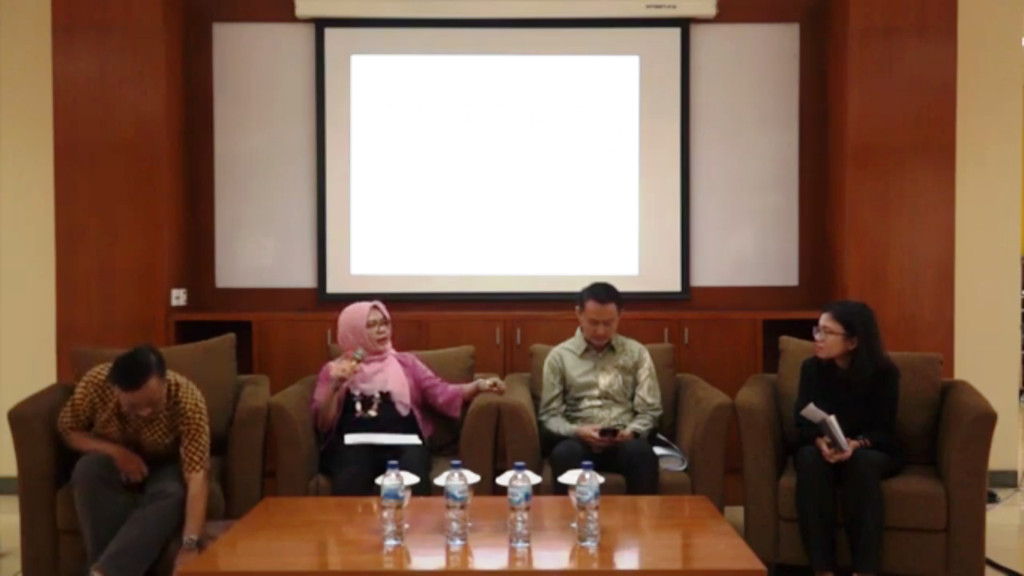
Left-right: Ronnie Nataatmadja (discussant), Pipit Pitriyan (chair), Ahmad Komarulzaman (discussant), Ayu Pratiwi (BIES author)
Although agroforestry is recognised as a means to stabilise farm income, little work has been done to differentiate farmers based on their incomes, their capacity to diversify crops, and the economic outcomes of agroforestry adoption. The 2019 Bulletin of Indonesian Economic Studies (BIES) Dialogue and Forum at IPB University (26 November 2019) and Universitas Padjadjaran (28 November 2019) focused on how agricultural training affects agroforestry promotion and evaluates the extent of its adoption, economic consequences, and relevance for the poor. Ayu Pratiwi (Turku School of Economics, University of Turku, Finland) was the main speaker, presenting the paper published in BIES in 2019 entitled Reducing Agricultural Income Vulnerabilities through Agroforestry Training: Evidence from a Randomised Field Experiment in Indonesia (co-authored with Aya Suzuki of University of Tokyo). Abstract of the paper is below:
Although agroforestry is recognised as a means to stabilise farm income, little work has been done to differentiate farmers based on their incomes, their capacity to diversify crops, and the economic outcomes of agroforestry adoption. By distinguishing between high- and low-income farmers, this paper examines how agricultural training affects agroforestry promotion, and evaluates its relevance for the poor, the extent of its adoption, and its economic consequences. We found that although training generally increased participants’ knowledge of agroforestry, it increased crop diversity only for low-income participants. We also detected the presence of information spillovers from participants to non-participants, which may increase crop diversity among non-participants and consequently reduce the measurable impact of training. When income heterogeneity is considered, we found that the low-income participants benefited more from increasing their incomes and expanding their social networks than the higher-income participants. We also found that agroforestry adoption helped to reduce income volatility.
The BIES Dialogue at Universitas Padjadjaran, Bandung was held in collaboration with the University’s Center for Economic and Development Studies (CEDS) and held since 2013. The discussants were Dr Ronnie Natawidjadja (Department of Agricultural Socioeconomy) and Ahmad Komarulzaman (Department of Economics, Universitas Padjadjaran). More than 50 people attended the event; participants were lecturers, graduate and undergraduate students, and several staff of the Bandung provincial government. The later commented that they are designing an agroforestry intervention and wanted to learn more about the issue from the BIES Dialogue.
About 60 people comprised of lecturers and students attended the BIES Forum at IPB University in Bogor, West Java, Indonesia. Dr Soeryo Adiwibowo (Department of Communications and Community Development, IPB University) and Dr Adisti Hartoyo (Department of Silviculture, IPB University) were discussants.
For the complete presentation and Q&A session, please refer to the video and materials provided.
